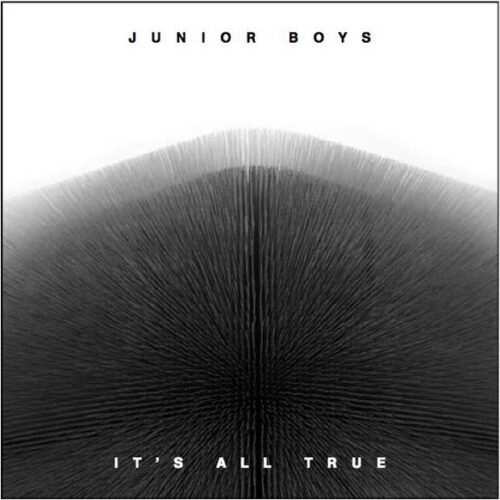Sitting down like Mr Creosote in The Meaning Of Life (pictured above), Universal Music Group (UMG) is increasingly omnivorous and, seemingly, rapacious. The latest course it has wolfed down is the 51 per cent of PIAS it did not already own (having bought 49 per cent in 2022). PIAS is – sorry, was – one of the biggest European independent labels.
You do not become the biggest record company in the world by accident. You become the biggest record company in the world by acquisition. UMG as we know it today was formed in late 1998 when Seagram bought PolyGram, reducing The Big Six major labels to five. The formerly independent label trailblazers that now find themselves part of UMG include Island, Motown, Def Jam, Interscope, Geffen, A&M and Republic. And it also acquired the lion’s share of EMI just over a decade ago (see below), shrinking the number of major labels in the world to three.
UMG is a Frankenstein’s monster, made up of multiple labels that have been folded into it over the decades. The same goes for the other two majors, Sony Music Entertainment and Warner Music Group. Indie labels also play this game, with Beggars Group having bought up, bought into or partnered with labels such as XL, Matador and Rough Trade.
The UMG/PIAS deal, however, suggests something bigger is afoot. PIAS co-founder Michel Lambot is leaving the company (but will serve as an advisor) while the other co-founder, Kenny Gates, says he is staying on and, one presumes, will hope to be a bulwark against too much UMG meddling in the PIAS Label Group. He was also effusive – perhaps a little too effusive – about just how wonderful UMG would be and how sunlit uplands were stretching into the horizon. “I am selling my shares not my soul,” he promised.
He also acknowledged any oncoming criticism in an internal memo and tried to get ahead of it with the words “fuck the haters”. That is a catchphrase more associated with bloviating influencers on social media who believe they are above question and that any legitimate criticism of them is just a jealous attack. It feels like a phrase that is papering over a lot of cracks.
I do not doubt for a second that Gates is going in there with the best intentions and genuinely believes he can keep the spirit of PIAS alive within a corporate behemoth. And perhaps that will work beautifully. For a while. But any student of mergers and acquisitions will tell you there is a complex process of corporate and cultural digestion that happens. Acquired labels operate as they did, but only to a point. New expectations and targets have to be met. New management teams slowly come in. The edges get sanded down, slowly and steadily, over time. The connective tissue of the company starts to lose its… connectivity. The personality of a label starts to shift. The corporate osmosis takes a while, but it is unrelenting. Acquired companies are not always completely gelded, but they always become (at best) different or (at worst) lesser. That’s just how consolidation works.
European indie label trade body Impala, of which PIAS was a key member for many years, greeted the news with teeth imprints on tongue. “PIAS is an inspiration for all entrepreneurs in music,” said Impala executive chair Helen Smith. “We will miss Michel and Kenny in so many ways. We congratulate them on their achievements and thank them for their leadership.”
Smith, however, added, “Impala expects regulators to investigate the acquisition and answer the question the industry is asking about how it is possible for UMG to gain more market share after it was already considered too big. We would expect both physical and digital markets to be assessed including for distribution services, as well as the impact on competitors, digital services, artists and fans. A share deal is one thing, this is something else.”
Impala will have a hell of a battle on its hands here. It watched, ultimately powerless, as Sony and BMG merged in 2004 (and then Sony bought out Bertelsmann’s share in 2008). Impala had, in 2007, said it would not oppose a Warner/EMI merger if certain concessions were made and new co-operations were entered into. That was purely academic as Terra Firma bought EMI and it went terribly wrong. So wrong, excuse the self-promotion, that I wrote a book about it. When Terra Firma lost control of EMI, UMG moved to buy as much of it as it could. That deal, with certain divestment commitments (including what led to the 2013 purchase of Parlophone, minus The Beatles’ catalogue, by Warner), got cleared by the regulators in 2012, to a horrified response from the indies.
Since then, UMG has been slowly bulking itself up, picking up, or buying into, smaller labels around the world. This year alone has seen a flurry of acquisitions. In January, it bought UK-based Oriental Star Agencies, which specialises in South Asian music. In February, UMG bought a majority stake in Maven, the Nigerian powerhouse of Afrobeats. The same month, it bought a quarter of Chord Music Partners. In September, UMG bought up the remaining 30 per cent of Thai label RS Group it did not already own, having bought 70 per cent in 2023. Put all that alongside the buy out of PIAS and it starts to make UMG look insatiable.
The problem for the world of indies is that when some of the biggest and the most defiantly independent indies get rolled into a major, the rules of engagement change. It starts to look like open season. This is another testing of the regulatory waters by UMG. Seeing how much it is allowed to buy up before the regulators in Europe and antitrust bodies in the US – who, as far as the music business is concerned, have mostly been snoozing at their desks for two decades or more – raise a hesitant hand and ask: is it really good for the music business to allow the biggest to become bigger and bigger?
On top of this, Warner is buying up/buying into companies like Dutch label Cloud 9 Recordings, Nika in Slovenia and Dancing Bear in Croatia this year. It was also seriously looking into buying Believe.
Sony, it seems, is spending its money on buying up huge catalogues (or the bits it doesn’t own) like Michael Jackson, Pink Floyd and Queen. But do not count it out of the current Consolidation Creep.
And BMG, the biggest indie, was recently showing an ankle to see if anyone would table an offer to buy or invest into it.
There are wider forces also hitting the independent sector that are not related to consolidation but that could have as profound an impact.
TikTok is choosing to try and negotiate new licensing deals with independent labels outside of the purview of Merlin, the digital music licensing partner for indies which uses collective bargaining to get better deals than smaller labels could get on their own. Merlin’s existing deal with TikTok expired at the end of October. In what has been termed “a classic divide-and-conquer situation”, TikTok has been looking to shunt Merlin to the margins and is already doing direct deals with individual independent labels.
How this unfolds remains uncertain. Maybe TikTok will struggle to get the critical mass of independents it needs to sign direct deals in order to recalibrate the licensing landscape more in favour of Big Tech than Small Label. Or maybe this will prove to be the fissure that leads to a breaking apart of the indie “community”, where self-interest trumps collective benefits.
Or maybe there’s something else happening within the “community” that could unpick indie collectivism. It has been brewing for some time, but ORCA (Organization for Recorded Culture and Arts) went public in July this year. It describes itself as “a think tank comprised of international independent music labels committed to increasing music’s economic, social, and cultural value”. The founding members of ORCA are some of the biggest and most powerful indies around, among them Beggars Group, Because Music, Domino, !K7 Music, Ninja Tune, Secretly Group, Partisan Records and City Slang.
It published its Setting The Stage: How Music Works report in July and, presumably, there is more to come. Is this the “lane” ORCA will swim in? Or are there grander ambitions for it to take on the kind of lobbying role that AIM has been providing in the UK and sister organisations like Impala (Europe), A2IM (US) and WIN (global) offer? And would that be for all indies, or only those who are part of ORCA?
(An orca is also known as a killer whale. Its naming does not feel accidental.)
Amid all this upheaval, UMG and the other majors are increasingly eyeing the buffet with rumbling stomachs.
Ultimately, Mr Creosote went a wafer-thin mint too far and exploded in a tornado of vomit. The major labels have far more staying power and capacity to swallow down everything until the plate is licked clean. Then they’ll eat the plate, the cutlery, the table, the chairs and whatever else is left. And then they’ll belch out the bones and bellow for a new menu.
This article was amended on 8 November. Because Music is a member of ORCA, not Believe as previously stated.


















